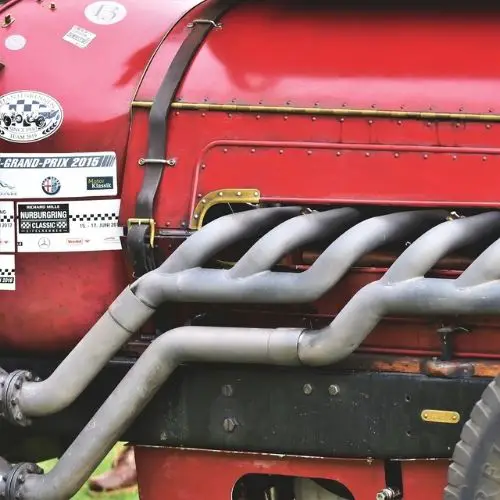We may get commissions for purchases made through links in this post. Thanks for the support! 👍
A vehicle’s engine can run without an exhaust manifold, however, it is not recommended. The biggest problem with not having an exhaust manifold is the building up of backpressure causing issues in the engine.
What Does An Exhaust Manifold Do?

An exhaust manifold is the first portion of your vehicle’s exhaust system. It is directly connected to the engine and serves the function of receiving your engine’s emissions. It collects the air and fuel mixture that emits from the several cylinders in your engine and disposes of any unused gases or gases that are not completely burnt.
The exhaust manifold does this by using high temperatures to burn the gasses completely. The manifold is also home to the first oxygen sensor in your exhaust system. This sensor monitors the amount of oxygen available and will communicate to the fuel injection systems to increase or decrease the flow of oxygen into the fuel/air mixture that is used by the engine as a source of power.
An exhaust manifold works like a funnel to collect all unused gasses, completes the process of burning them, the sends them to the next step of the exhaust system.
Why Do Engines Need An Exhaust Manifold?
A vehicle will be able to run without an exhaust manifold, but it will not perform as well as it would with one. The valves inside of the engine are not designed to operate without any resistance. Any damage that might occur to your valves would happen over time.
The effects would not take place immediately or over a short amount of miles. Your vehicle would still idle as normal, however, there will be long-term consequences. Without a proper exhaust manifold, the valves on your engine will pull air from the outside. This air is a much cooler temperature than the air that is trapped inside the engine bay.
This colder air will cause the valves to constantly heat up and cool down. Over time, this will fatigue your exhaust valves and cause them to begin to crack.
An exhaust leak can affect your vehicle’s performance negatively. It can rob your engine of power and slow down your ability to accelerate as it loses compression with an incomplete exhaust system.
It can also decrease your fuel efficiency. This will give you fewer miles to the gallon and force you to spend more on fuel until the exhaust manifold is replaced.
- Open Differentials: Off-Roading just isn’t what they are meant for
- Are Diesel Trucks Good For Off-Road?
- Wheel Spacers vs Off-Road: Should you go off-road with wheel spacers?
Conclusion
It is true that an engine can operate without an exhaust manifold. However, it is not recommended to drive without a complete exhaust system due to the damage it will eventually cause.
Running an engine without an exhaust manifold will put added stress onto your exhaust valve and they will begin to crack and need to be replaced.
If the situation arises and you find yourself having to drive with open headers there is no need to panic, but it an issue that should be resolved as soon as possible to avoid costly repairs down the road.
![This Is How Cars Have Wifi [And Why]](https://amanandhisgear.com/wp-content/uploads/2020/01/How-do-cars-have-wifi.jpg)

